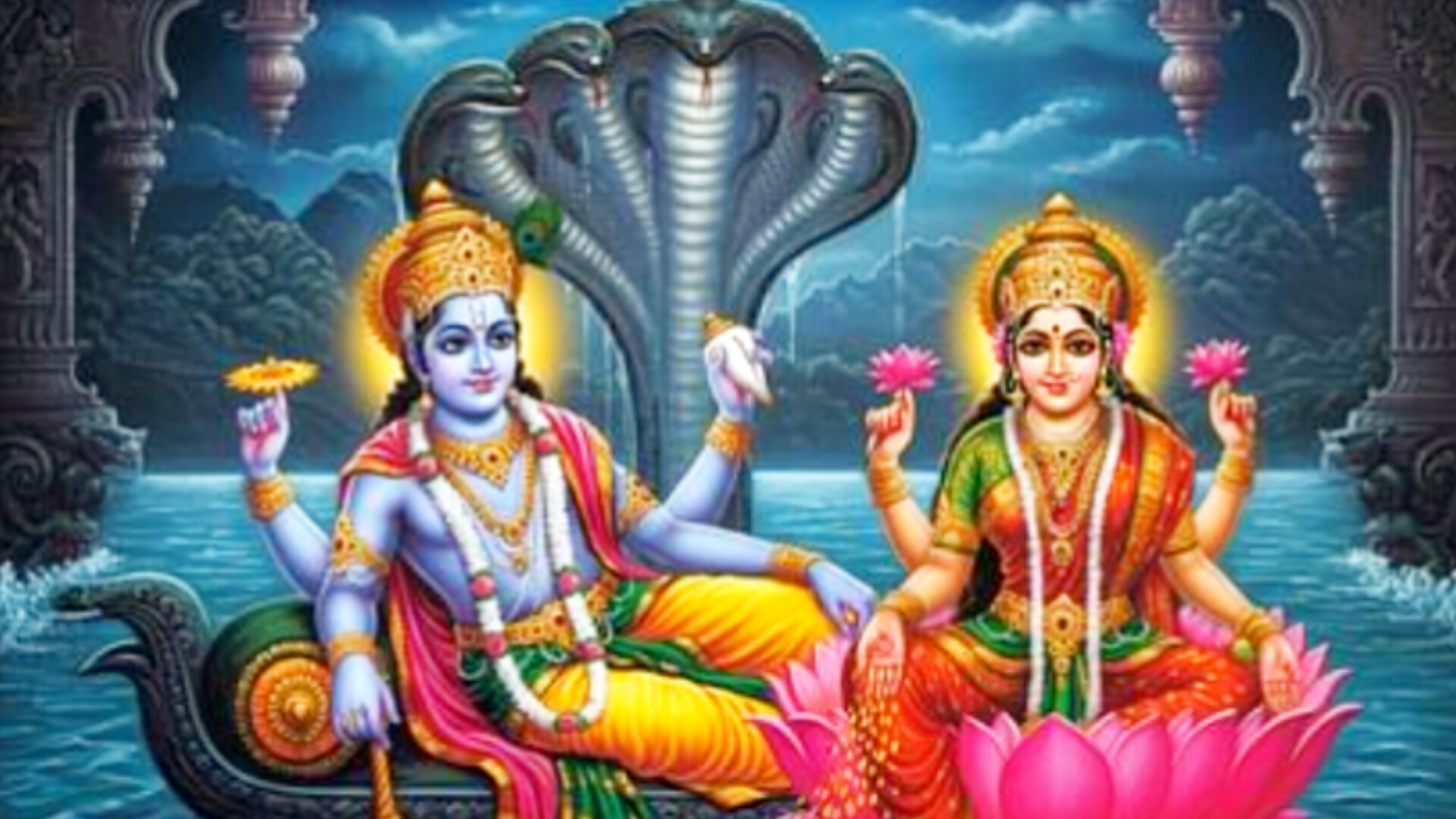Apara Ekadashi is a significant Hindu fasting day observed on the 11th day (Ekadashi tithi) of the Krishna Paksha (waning phase of the moon) in the Hindu month of Jyeshtha, which typically falls in May or June of the Gregorian calendar. In 2025, it will be observed on May 23. The term “Apara” means “limitless” in Sanskrit, signifying the boundless blessings and spiritual benefits believed to be bestowed upon devotees who observe this fast with devotion. It is also known as Achala Ekadashi or, in some regions, Bhadrakali Ekadashi (in Punjab, Jammu & Kashmir, and Haryana) and Jalakrida Ekadashi (in Odisha, in honor of Lord Jagannath).
Significance of Apara Ekadashi
Apara Ekadashi is dedicated to Lord Vishnu, particularly in his Trivikrama form, and is considered one of the most spiritually rewarding Ekadashis. According to Hindu scriptures like the Brahma Purana and Padma Purana, fasting and performing rituals on this day offer immense spiritual and material benefits, including:
- Purification of Sins: Observing the fast is believed to absolve grave sins, such as Brahmahatya (killing a Brahmin), lying, cheating, or other unethical acts. Even sins from previous lives are said to be cleansed.
- Spiritual Growth and Moksha: The fast is seen as a path to spiritual purification, self-discipline, and attaining moksha (liberation from the cycle of birth and death). It fosters devotion and a deeper connection with Lord Vishnu.
- Material Prosperity: Devotees believe that observing Apara Ekadashi brings limitless wealth, fame, happiness, and success in personal and professional life.
- Equivalent to Major Pilgrimages: The merits of fasting on this day are equated to performing pious acts like bathing in holy rivers (e.g., Ganges during Kartik, Pushkar, or Prayag), visiting sacred sites like Kedarnath or Badrinath, or donating gold, cows, or land.
The significance of Apara Ekadashi was narrated by Lord Krishna to King Yudhishthira, as mentioned in the Puranas, emphasizing its power to grant divine blessings and spiritual elevation.
The Story of Apara Ekadashi
A popular legend associated with Apara Ekadashi, found in Hindu scriptures, revolves around King Mahidhwaj and his younger brother Vajradhwaj. The story highlights the redemptive power of the fast:
- King Mahidhwaj was a virtuous and kind-hearted ruler, but his envious brother Vajradhwaj killed him and buried his body under a peepal tree. Due to his untimely death, Mahidhwaj’s soul became a ghost and troubled passersby. A sage named Dhaumya, passing by the tree, used his mystic powers to understand the ghost’s plight. Out of compassion, Dhaumya observed the Apara Ekadashi fast and transferred the spiritual merits to Mahidhwaj’s soul. As a result, the king was liberated from his ghostly existence, attained a transcendental body, and was transported to Vaikuntha (Lord Vishnu’s abode) on a Pushpak Vimana (divine chariot).
This story underscores the fast’s ability to grant salvation and freedom from past sins, even for those in dire spiritual conditions.
Rituals of Apara Ekadashi
The observance of Apara Ekadashi involves strict rituals performed with devotion to Lord Vishnu. Key practices include:
- Fasting:
- The fast begins on Dashami (10th day) with a single satvik (pure, vegetarian) meal before sunset to ensure an empty stomach on Ekadashi.
- On Ekadashi, devotees may observe:
- Foods to avoid: Grains (rice, wheat, barley), lentils, beans, onions, garlic, and non-vegetarian items.
- The fast is broken on Dwadashi (12th day) during the Parana time (e.g., May 24, 2025, 4:56 AM to 7:37 AM IST for Ujjain).
- Puja and Worship:
- Devotees wake up early, take a holy bath (preferably in a river or with a prayer to Mother Earth), and set up an altar with idols of Lord Vishnu, Lord Krishna, or Laddoo Gopal, along with Goddess Lakshmi’s Shree Yantra.
- Offerings include flowers, tulsi leaves, incense, a ghee lamp, and panchamrit (a mixture of milk, curd, ghee, honey, and sugar).
- Recite Vishnu Sahasranama (1000 names of Lord Vishnu) or mantras like Om Namo Bhagavate Vasudevaya and perform the aarti.
- Reading or listening to the Apara Ekadashi Vrat Katha is essential to complete the ritual.
- Additional Practices:
- Avoid negative thoughts, lying, or speaking ill of others, and focus on devotion to Lord Vishnu.
- Engage in bhajans and kirtans (devotional songs) and avoid sleeping during the evening to stay immersed in spiritual activities.
- Visiting Lord Vishnu or Krishna temples and making charitable donations (e.g., to Brahmins or the needy) are considered highly meritorious.
Regional Variations
- In Punjab, Jammu & Kashmir, and Haryana, it is celebrated as Bhadrakali Ekadashi, with worship of Goddess Bhadra Kali alongside Lord Vishnu.
- In Odisha, it is known as Jalakrida Ekadashi, dedicated to Lord Jagannath.
Spiritual and Health Benefits
- Spiritual: The fast purifies the mind, body, and soul, fostering self-discipline, mental peace, and a closer connection with Lord Vishnu. It is believed to open the path to Vaikuntha (Vishnu’s divine abode).
- Health: Fasting aids digestion, detoxifies the body, and promotes overall well-being by giving the digestive system a rest.
2025 Apara Ekadashi Date and Timings
- Date: May 23, 2025 (Friday)
- Ekadashi Tithi Begins: May 23, 2025, 1:12 AM (IST, Ujjain)
- Ekadashi Tithi Ends: May 23, 2025, 10:29 PM (IST, Ujjain)
- Parana Time (Breaking the Fast): May 24, 2025, 4:56 AM to 7:37 AM (IST, Ujjain)
Conclusion
Apara Ekadashi is a powerful spiritual observance that combines fasting, prayer, and devotion to Lord Vishnu to achieve purification, prosperity, and liberation. Its significance lies in its ability to erase even the gravest sins and grant limitless blessings, as narrated by Lord Krishna. By following the rituals with sincerity, devotees can attain both spiritual elevation and material abundance, making it a cherished occasion in the Hindu calendar.
If you’d like guidance on specific rituals, the Vrat Katha, or additional details, let me know!

